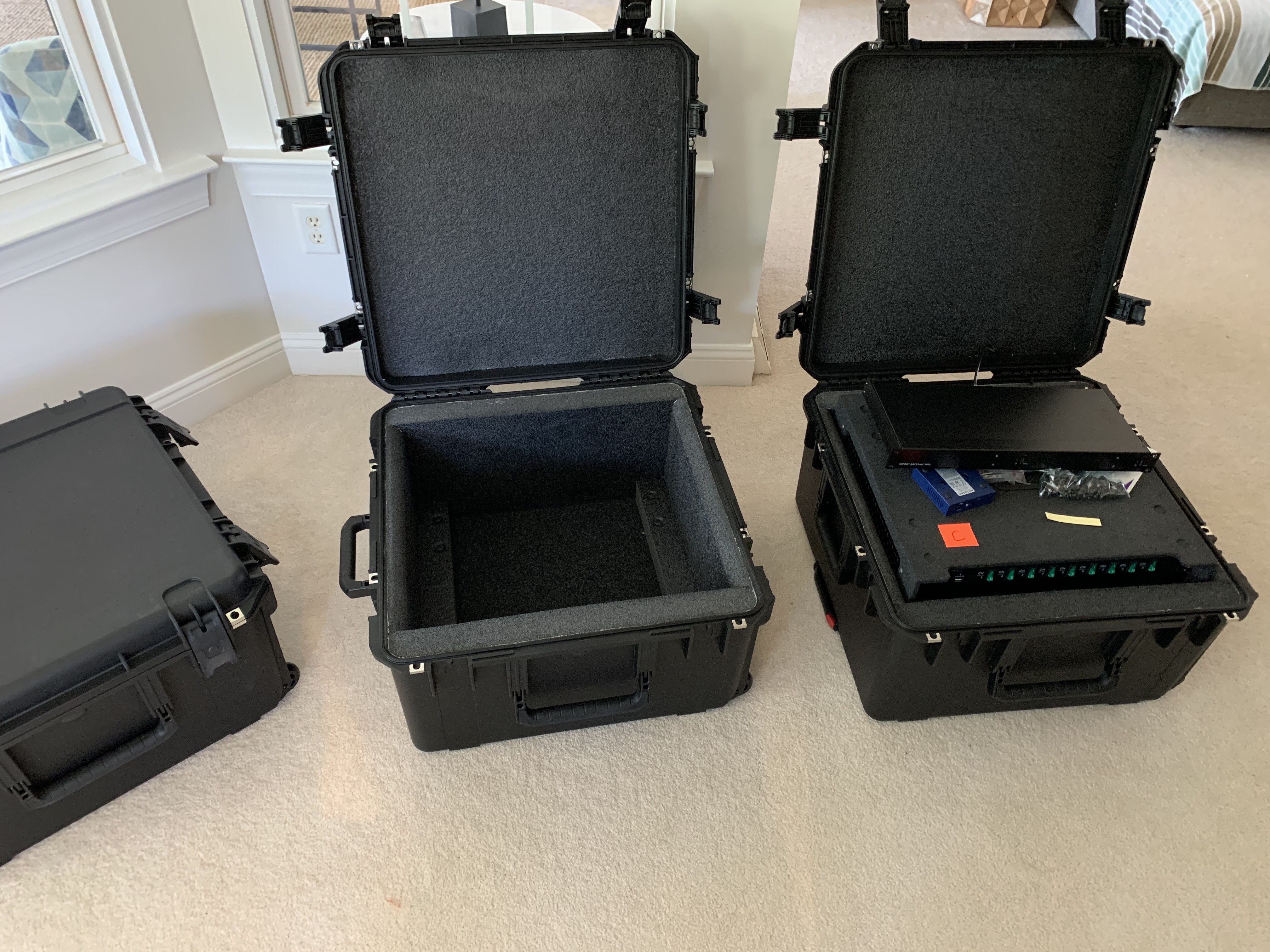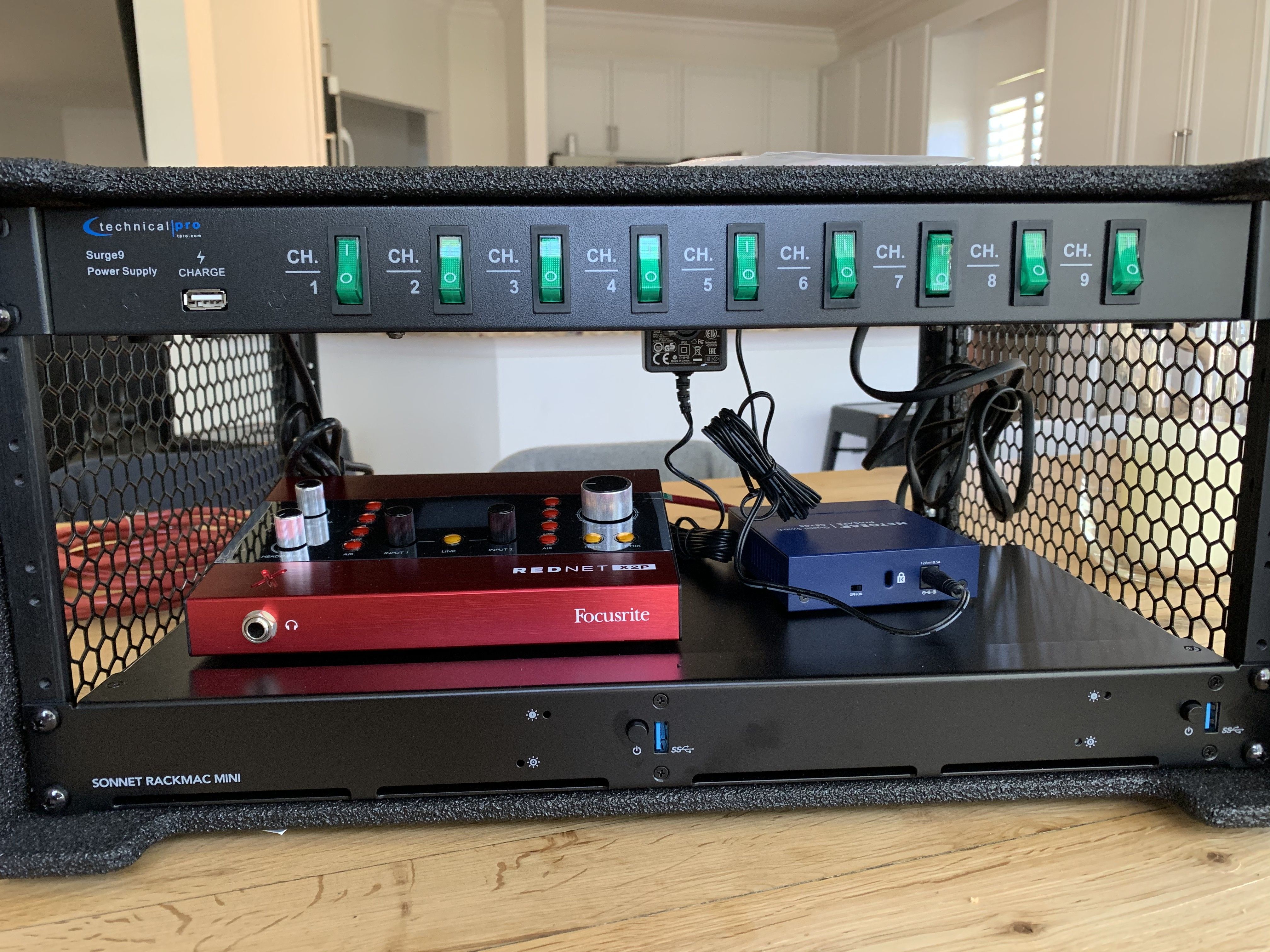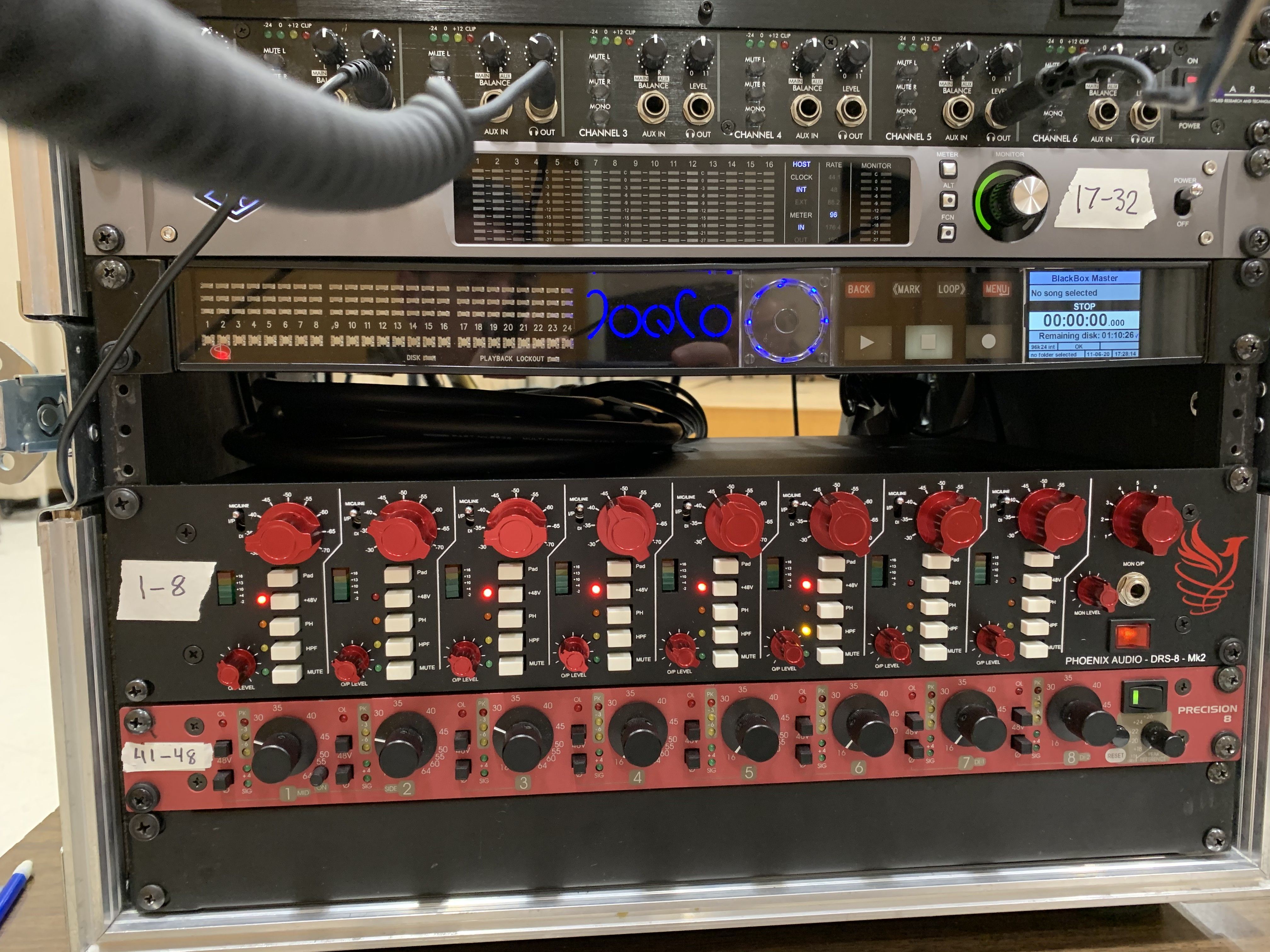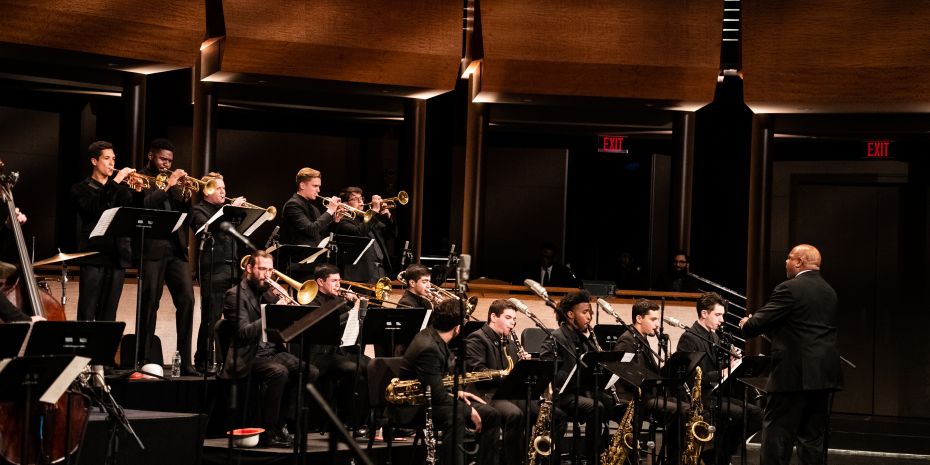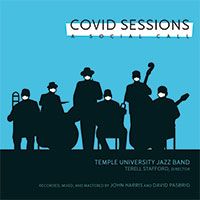
Temple University Jazz Band
Terell Stafford, director
Covid Sessions: A Social Call is available for streaming and download on all major platforms. Physical CDs are available for purchase on Bandcamp.
2020 was shaping up to be a banner year for the Temple University Jazz Band. It kicked off in January with a victory in the inaugural Jack Rudin Jazz Championship at Jazz at Lincoln Center. The ensemble earned top honors in competition with ten of the nation’s most renowned university jazz programs, selected by an esteemed panel of judges including iconic bassist Ron Carter; trumpet player Tanya Darby; drummer and bandleader Jeff Hamilton; baritone saxophonist Gary Smulyan; and Jazz at Lincoln Center director and legendary trumpeter Wynton Marsalis.
This lofty honor followed by a mere month the band’s performance at The Midwest Clinic, the prestigious international band and orchestra conference held in Chicago. “We were really flying high,” declared a proud Terell Stafford, Director of Jazz and Instrumental Studies at Temple University. “Then the pandemic happened and we all went our separate ways.”
The coronavirus pandemic and subsequent quarantine disrupted virtually everyone’s lives around the globe, in sometimes major, sometimes relatively minor but no less jarring ways. For the Temple University Jazz Band, it meant not only an abrupt end to a stellar academic year, but also threatened to throw Stafford’s plans to document this stellar band into total disarray. Besides being a first-class educator, however, Stafford is also a veteran jazz musician and therefore, of course, knows how to improvise in any situation.
Thus the album you’re now listening to: The COVID Sessions, a big band album unique in the annals of jazz history. A 21-piece ensemble like the Temple University Jazz Band inevitably takes up considerable real estate on whatever stage it performs upon, but this recording expands that notion to unprecedented extremes. A single ensemble piece finds the band members stretched across the continent, from Temple’s home in Philadelphia to spots as far-flung as Missouri, Texas and Florida, wherever the students found themselves when the country went into lockdown.
The innovative technology that made this album possible was the brainchild of multiple Grammy and Emmy Award-winning recording engineer John Harris. The software allows musicians to record remotely while a producer or engineer runs the session from their own location – creating a virtual recording studio wherever is most convenient. In the case of The COVID Sessions, that might be a recital hall at Temple or a student’s bedroom or kitchen, while Harris or Temple’s Music Technology Professor and Recording Studio Director Dr. David Pasbrig oversaw the session.
“I send the students a couple of boxes,” explained Pasbrig. “Included in the boxes are a computer, an interface, the microphones and the cables, everything they need to record. The students then are in charge of setting everything up and putting themselves in a reasonably quiet place in their house, if they can find one. Then I log into that computer from wherever I am and I conduct the session remotely. On the student’s end, there’s no monitor, no keyboard, no mouse; all they do is turn it on and I do everything else.”
Terell Stafford is a veteran musician and an in-demand soloist who is no stranger to recording remotely accompanied only by a pre-existing backing track. But even for him this new approach was a thrilling novelty. “I felt like a little kid,” he recalled of his first experience with the software. “I was the guinea pig, more or less. So David dropped off the boxes and I brought them into my house, plugged everything in, and my mind was blown. I was sitting in my practice room, doing a recording session and hearing the music while he was able to control everything.”
The seven pieces on The COVID Sessions are identified with many of the most heralded big bands in jazz history, allowing listeners to hear how vividly a band apart can realize tunes originally played in more intimate environs. Duke Ellington, Count Basie, the Thad Jones/Mel Lewis Orchestra, the Benny Goodman Orchestra, all find their echoes in the album’s scintillating repertoire.
For a band used to playing together en masse, the idea of assembling a tune piece by piece in isolation could be a daunting one. The same can be said for the engineer, who faces an unusual lack of control over the environment – for instance, a persistent noise plaguing one session that turned out to be a ceiling fan providing welcome, if noisy, relief from a Missouri heatwave.
The fact that The COVID Sessions turned out to be such an ebullient and swinging session speaks to the skills of this particular ensemble and to Stafford’s guidance. While membership in the ensemble necessarily changes year by year as students graduate or enter the program, some of the musicians in the band have now worked together for several years.
Perhaps the biggest challenge was faced by lead trumpet player Fareed Simpson-Hankins, who had to set the template for the ensemble based on the tracks laid down by the band’s rhythm section. The album culminates his seventh and final year in the band, spanning his undergraduate and Masters studies. He cites the Jazz at Lincoln Center competition, and especially Stafford’s leadership during that high-pressure event, as integral to the band solidifying a collective voice strong enough to see them through this unique task.
“It was intense, but Terell encouraged us to work hard not just to go up there and win, but to be better as a band,” he recalled. “He told us whatever happens in the competition, but we should come out of there as a stronger band, as more of a community and a family. So we all looked at it that way, and it ended up being a lot of fun. It was like a big jazz party.”
Tenor saxophonist Ben Stocker wrapped up his second year in the band with his contribution, including solos on “Avenue C” and “Diminuendo and Crescendo in Blue.” He recorded his parts alone in a Temple practice room, while a pair of trombonists played together but socially distanced in the nearby Klein Recital Hall.
“It would have been great to record a normal album, all together,” Stock said. “But now we’ll always remember how crazy this was. Hopefully someday we can play together again, but it felt important to document this exact moment.”
--Shaun Brady
Philadelphia, July 2020
Select Reviews and Press
Track Listing
- Avenue C
- Bugle Call Rag
- A Sleepin' Bee
- To You
- Social Call
- Groove Merchant
- Diminuendo and Crescendo in Blue
Performers
Temple University Jazz Band
Terell Stafford, director
RHYTHM SECTION
Scott Edmunds, piano
Ben Truner, guitar
Nathan Pence, bass
Maria Marmarou, drums
Donovan Pope, drums
SAXOPHONE
Patrick Hill, alto I
Adam Abrams, alto II
Dylan Band, tenor I
Ben Stocker, tenor II
Zach Gross, baritone
TROMBONE
Ian Kaufman, trombone I
Bill Saurman, trombone II
David Chodor, trombone III
Omeed Nyman, bass
TRUMPET
Fareed Simpson-Hankins, trumpet I
John Meko, trumpet II
Eric Gonzalez, trumpet III
Banks Sapnar, trumpet IV
Andrew Esch, trumpet V
John Brunozzi, trumpet VI
VOCALS
Danielle Avicolli
Recorded remotely by David Pasbrig and John Harris, July 2020
Produced by Robert Stroker and Terell Stafford
Assistant Producer: David Pasbrig
Recording Engineers: David Pasbrig and John Harris
Mixing: John Harris
Mastering: David Pasbrig
Design: Bond Creative


